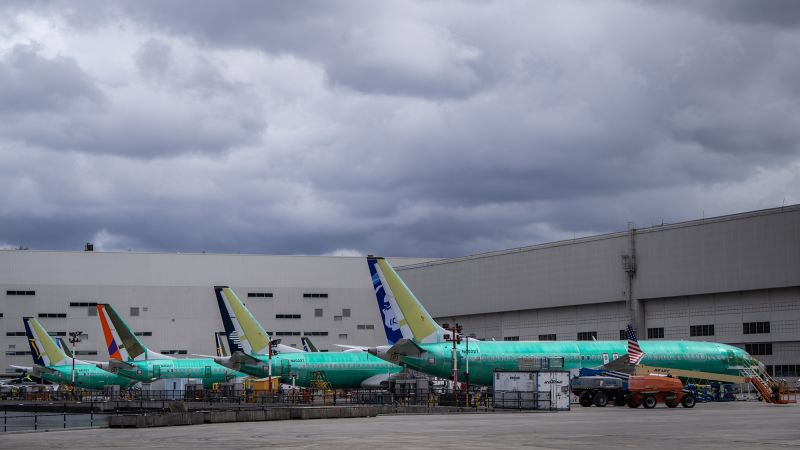Boeing reported a smaller loss in the first quarter compared to the previous year but warned of further production cuts to address quality and safety issues. The core operating loss was $388 million, down from $440 million a year earlier, but significantly less than analysts had forecast. Despite this, losses from operations in the commercial airplanes unit nearly doubled to $1.1 billion, and revenue fell 8% to $16.6 billion due to a drop in jet deliveries to customers. Boeing announced plans to produce fewer 737 Max jets and limit production of the 787 Dreamliner due to assembly line problems.
CEO Dave Calhoun stated that the company will take the necessary time to strengthen quality and safety management systems to ensure a stronger future. The results were impacted by compensation to airlines for the three-week grounding of the 737 Max 9 jets following an incident involving an Alaska Airlines flight. Alaska Air and United Airlines have reached compensation agreements with Boeing, with Alaska receiving $162 million. The incident has prompted investigations by various regulatory agencies and raised concerns about the safety and quality of Boeing’s aircraft.
Boeing has committed to improving quality and safety issues and encourages employees to report concerns. Despite a string of losses and quality problems over the past five years, including fatal crashes of the 737 Max and subsequent grounding, Boeing reported record orders and sales in December 2023. However, the incident aboard the Alaska Air flight in January 2024 derailed hopes of sustained profitability. Investigations have found design flaws in the Boeing aircraft and led to significant financial losses totaling $31.9 billion since the grounding in 2019.
The company reported rare core operating profits in the fourth quarter of 2023 and announced plans to increase 737 Max production in 2024. However, the incident involving the missing bolts on the Alaska Airlines flight has cast a shadow over Boeing’s efforts to recover financially. The NTSB investigation has not attributed fault for the accident, which has drawn attention to Boeing’s safety practices and treatment of employees who raise concerns. Shares of Boeing rose in pre-market trading following the earnings report, signaling investor confidence in the company’s ability to address its ongoing challenges.
Overall, Boeing continues to grapple with quality and safety issues that have impacted its financial performance and reputation in the industry. The company’s commitment to improving its processes and addressing concerns raised by employees is crucial for rebuilding trust with customers and regulators. The ongoing investigations and legal implications of the January incident will likely shape Boeing’s strategy moving forward as it seeks to regain stability and profitability in the aerospace market.













